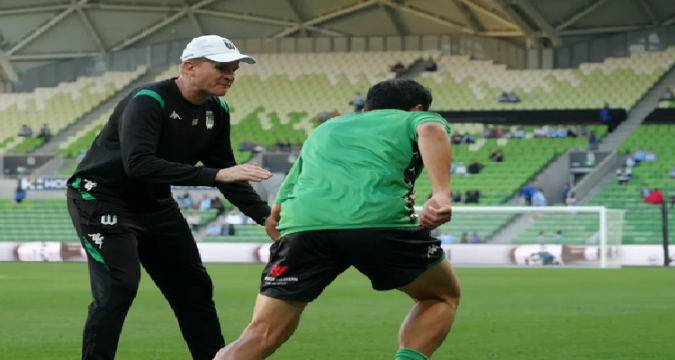
Achieving success in football’s competitive environment involves more than just the players on the field. A well-rounded support staff with a variety of responsibilities, each of which is essential to the club’s overall performance, is the cornerstone of every successful squad. Finding and developing these key personnel roles may greatly improve a team’s output, cohesiveness, and long-term success.
1. Head Coach: The Tactical Visionary
At the helm of any successful football team is the head coach, who serves as the tactical visionary. This individual is responsible for developing the team’s strategy, conducting training sessions, and making critical decisions during matches. A great head coach not only understands the game deeply but also possesses the ability to inspire and motivate players. Their leadership sets the tone for the team’s culture, emphasizing values such as discipline, teamwork, and resilience.
The head coach must also be adaptable, able to make real-time adjustments based on the flow of a match. They need to analyze opponents, identify strengths and weaknesses, and develop game plans that capitalize on their team’s capabilities while addressing vulnerabilities.
2. Assistant Coaches: The Supportive Strategists
While the head coach is crucial, assistant coaches provide indispensable support. These individuals often specialize in specific areas, such as offense, defense, or goalkeeping. Their expertise allows for focused training and skill development within those domains. For example, an offensive coach may work on set pieces and attacking strategies, while a defensive coach emphasizes positioning and tackling techniques.
Additionally, assistant coaches serve as intermediaries between players and the head coach, facilitating communication and providing additional guidance. Their presence helps to foster a collaborative environment, where players feel supported in their development.
3. Sports Performance Staff: The Health and Fitness Experts
In modern football, player fitness and health are paramount. The sports performance staff includes fitness trainers, strength and conditioning coaches, and physiotherapists. These professionals are responsible for designing training programs that enhance athletic performance while minimizing the risk of injury.
Strength and conditioning coaches focus on developing players’ physical capabilities, tailoring workouts to improve strength, speed, and endurance. Meanwhile, physiotherapists play a critical role in injury prevention and rehabilitation, ensuring that players return to the field safely and effectively. Their expertise is crucial for maintaining player health throughout a demanding season.
4. Sports Scientist: The Data-Driven Analyst
The role of sports scientists has gained prominence in recent years as football clubs increasingly rely on data analytics to inform their decisions. Sports scientists analyze performance metrics, physiological data, and other relevant information to help optimize training and gameplay strategies.
By assessing factors such as player workload, recovery rates, and injury risks, sports scientists provide valuable insights that inform coaching decisions and training regimens. Their contributions enable teams to adopt a more scientific approach to performance, enhancing overall efficiency and effectiveness.
5. Nutritionists: The Fueling Experts
Proper nutrition is critical for athlete performance, and the role of a nutritionist cannot be overlooked. A dedicated nutritionist develops personalized meal plans that align with the players’ energy needs and training goals. They ensure that athletes receive the necessary nutrients to support peak performance and optimal recovery.
Additionally, nutritionists educate players on healthy eating habits, hydration strategies, and meal timing, which can greatly influence performance on match days. By fostering an awareness of nutrition, teams can empower players to take control of their health and well-being.
6. Sports Psychologist: The Mental Conditioning Coach
The mental aspect of football is as crucial as the physical. A sports psychologist helps players develop mental resilience, cope with pressure, and enhance focus. They provide tools for managing anxiety and building confidence, which can be especially important during high-stakes matches.
By working individually or with the team as a whole, sports psychologists create a culture of mental well-being, helping players develop strategies to maintain a positive mindset throughout the season. Their role is increasingly recognized as essential for fostering a balanced, well-rounded team.
7. Administrative and Support Staff: The Backbone of Operations
Behind the scenes, administrative and support staff play a crucial role in the smooth functioning of a football club. From team managers to logistics coordinators, these individuals ensure that the daily operations run efficiently. They handle everything from scheduling training sessions to coordinating travel logistics, allowing coaches and players to focus on performance.
In addition, marketing and communications staff are essential for promoting the club, engaging with fans, and building a strong brand presence. Their efforts contribute to the overall success of the team, both on and off the field.
Creating the ideal football team requires a holistic approach that recognizes the importance of various employee positions beyond just the players. Each role, from the head coach to the support staff, contributes to the collective success of the club. By investing in and nurturing these crucial positions, football teams can build a foundation that not only supports immediate achievements but also fosters long-term growth and success in the ever-evolving world of football. In this collaborative environment, healthy communication, shared goals, and a united vision pave the way for a winning team.